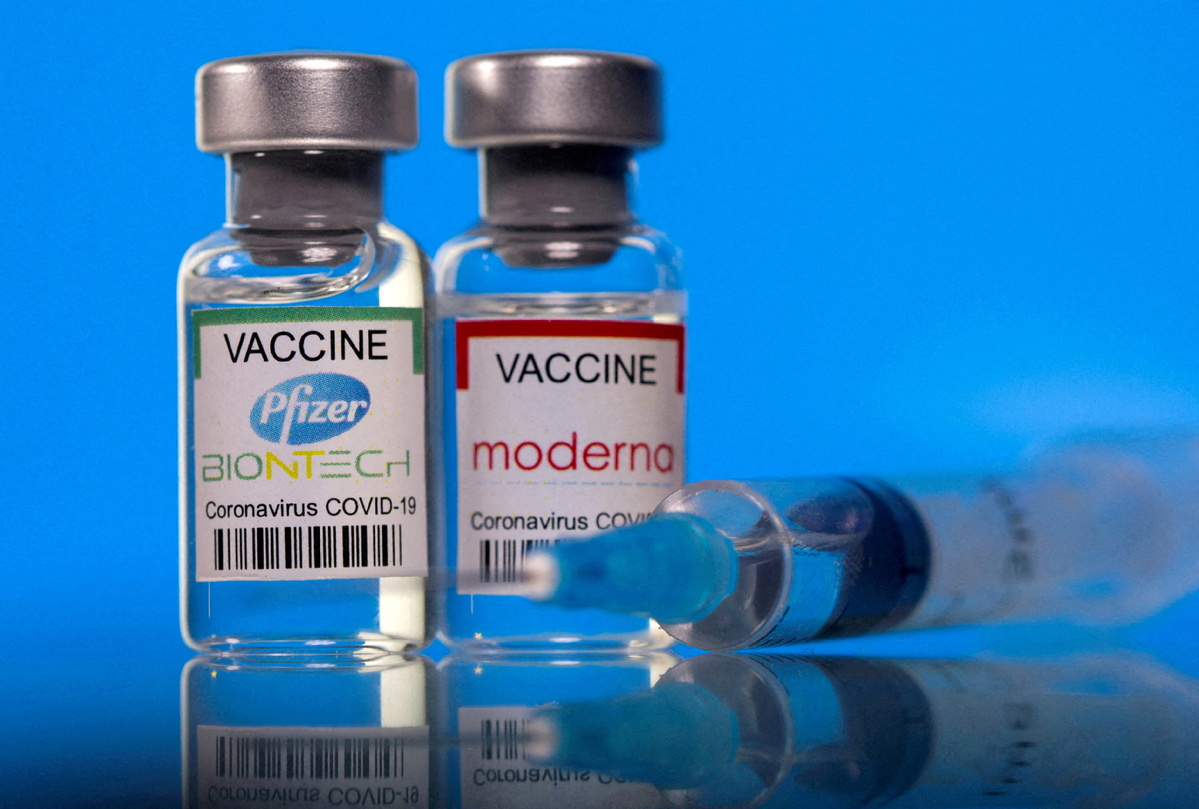Jab makers urged to do more for developing world


Two of the world's major COVID-19 vaccine makers - Moderna and Pfizer - are being urged to consider freely sharing their formulas with the developing world.
The United States-headquartered pharmaceutical and biotechnology giants were nudged in that direction this week by Institutional Shareholder Services, or ISS, which recommended investors in the companies to support a motion from Oxfam America to look at sharing their lifesaving vaccine technology.
ISS, which advises shareholders ahead of votes on key issues and which votes on behalf of many institutional shareholders, said Moderna and Pfizer are increasingly facing criticism for their "alleged prioritization of profits" over health.
The Oxfam motion says the companies face "reputational risks" for not sharing information that could hasten the end of the pandemic.
ISS said there is now significant support for patent protection to be waived, so poor nations can cheaply produce vaccines for their populations.
ISS said it wants shareholders to begin by supporting the commissioning of a third-party report on the feasibility of temporarily waiving patent protection for their COVID-19 vaccines and freely sharing the technology.
Glass Lewis, another company that facilitates engagement between companies and their shareholders, has also recommended shareholders support Oxfam's resolution.
Moderna said on Tuesday it has now maximized its manufacturing capacity of COVID-19 vaccine and that there is now an "ample supply" for global populations.
The company also said it is not enforcing its COVID-19 vaccine patents for the duration of the pandemic, which effectively means nations can use the technology without paying fees.
It said the main concern now is in ensuring vaccines are delivered and administered in a timely manner to the people who need them.
Pfizer said it too has ramped up production, and will send 1 billion doses of its jab to developing countries this year.
Both Moderna and Pfizer will hold their annual shareholder meetings on April 28, when Oxfam's motion will be discussed.
Strong results
Moderna also announced on Tuesday it has received strong results from trials into a new "bivalent" vaccine, which combines the original strain of SARS-CoV-2 with the Beta variant.
The company said the new vaccine left people with more than twice the number of neutralizing antibodies than its original jab.
Stephane Bancel, Moderna's CEO, said the new jab could become the main one used in the fall booster program throughout the northern hemisphere.
"We believe that a bivalent booster vaccine, if authorized, would create a new tool as we continue to respond to emerging variants," he said.
Moderna said protection offered by its new bivalent dose also last longer than existing jabs, with it inducing a 2.15-fold increase in antibodies eight months after being administered, in comparison to the company's current jab.
The results have not yet been peer-reviewed.
- Survivor of Japan's 'comfort women' system dies
- 19 foreigners among China's first officially certified hotpot chefs
- China approves new lunar sample research applications from institutions
- Fishing, Hunting festival opens at Chagan Lake in Jilin
- A glimpse of Xi's global insights through maxims quoted in 2024
- China's 'Ice City' cracks down on ticket scalping in winter tourism




































